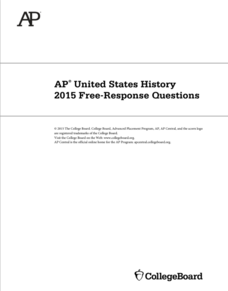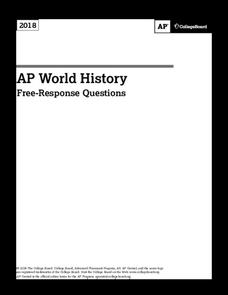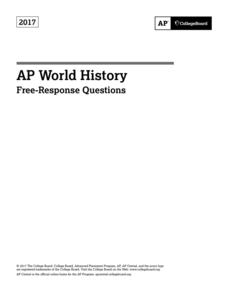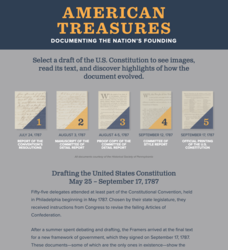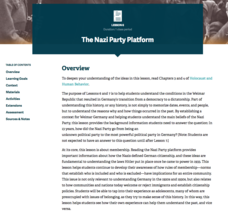National WWII Museum
Pearl Harbor: Analyzing FDR's Pearl Harbor Address
FDR's words calling the attack on Pearl Harbor a "day in infamy" have been immortalized. Learners use analysis and discussion questions to consider the origins and drafting of the famed speech that brought the United States into World...
Benjamin Franklin Tercentenary
Lists to Live By: Developing a Self-Improvement Plan
Ben Franklin was a man with a plan. Learners investigate his plan for self-improvement using excerpts from Franklin's autobiography. Then, pupils develop their own plans and discuss how to sell them to others using the two-session lesson...
Library of Congress
Marco Paul's Travels on the Erie Canal: An Educational Voyage
Following the book, Marco Paul's Travels on the Erie Canal, readers complete an activity for each chapter, take part in discussions, and respond to several questions. To show what they know, scholars create an alphabet book using primary...
National Endowment for the Humanities
Lesson 2: The United States, France, and the Problem of Neutrality, 1796–1801
While the French Revolution could be considered inspired by the American Revolution, it created thorny problems for the new United States. Should the United States get involved and be drawn into a European drama? Was the US strong...
National Endowment for the Humanities
Lesson 3: Britain, Napoleon, and the American Embargo, 1803–1808
While the French were once the allies of Americans, the Napoleonic Wars saw the United States almost drawn into a war with its one-time friend. Wars in Europe threatened to draw in the early republic. A primary source-based activity...
National Endowment for the Humanities
Lesson 1: The United States Confronts Great Britain, 1793–1796
After the Revolutionary War, the success of the United States was far from guaranteed. Foreign powers coveted the new land, and Great Britain challenged American sovereignty. Learners consider the challenges facing the new nation using...
Jamestown-Yorktown Foundation
How Do We Know about Colonial Life?
Young history sleuths examine an inventory of the belongings of a Virginia colonist and use deductive reasoning to determine what the document reveals about colonial life. They then use a Venn diagram to compare the inventory with a...
Jamestown-Yorktown Foundation
Making a Patriot Inquiry: Are Independence, Freedom, and Liberty the Same Thing?
As part of a study of the American Revolution, class members engage in an inquiry-based lesson that has them watch a scene from the play Slave Spy, examine multiple primary source documents, and then discuss the similarities and...
Jamestown-Yorktown Foundation
What Was Everyday Life like in Colonial Virginia?
After reflecting on jobs people perform in the present day, scholars discuss what they believe jobs would have been like in Colonial Virginia during the American Revolution. Small groups then perform a jigsaw using informational packets....
Benjamin Franklin Tercentenary
Benjamin Franklin, Elder Statesman
Ben Franklin was the only American to sign The Declaration of Independence, the Treaty of Alliance with France, the Treaty of Paris, and the US Constitution. An interesting resource explores his role in the latter by comparing the US...
College Board
2015 AP® United States History Free-Response Questions
How do preservationists and conservationists differ? How did the Founding Fathers come to understand the American Revolution? Learners explore the queries and more using authentic College Board materials to prep for upcoming exams.
College Board
2018 AP® United States History Free-Response Questions
Learners explore the the Age of Imperialism using primary sources and an authentic College Board documents-based question. Other prompts explore the economic changes brought about by the American Civil War, technology, mercantilism, and...
College Board
2018 AP® World History Free-Response Questions
How were the development of railroads critical to the rise of empires? Scholars delve into the relationship between the two using a documents-based question from College Board. Other prompts explore ideas such as nomadic and sedentary...
College Board
2017 AP® United States History Free-Response Questions
Were unfair taxes really the cause of the American Revolution? Learners explore the complicated historiography behind the revolutionary period using authentic College Board prompts. The free-response questions from the exam feature...
National Constitution Center
Federalism, the Commerce Clause, and the Tenth Amendment
How do the state and federal governments relate to each other? The Constitution has a lot to say about that! Using an interactive online tool, pupils explore the Tenth Amendment. They apply their knowledge to political cartoons and news...
National Constitution Center
Voting Rights since the Fifteenth Amendment
What does it mean to have the right to vote? To what extent have interpretations of the Fifteenth Amendment changed over time? Young historians examine and analyze primary source documents, an interactive website, and historical analysis...
National Constitution Center
Civil Liberties and Rights Worldwide
How do governments differ in how they protect human rights? While the United States prides itself on its Bill of Rights, other countries have their own ways of protecting citizens' liberties. An interactive website, paired with...
National Constitution Center
American Treasures
Just how long did it take the framers to write the Constitution? What role did the drafting process play? Scholars examine various drafts from the Constitutional Convention to gain a better understanding of its formation. Interactive...
Mississippi Department of Archives and History
Protesting Violence without Violence
The ultimate legacy of Emmett Till's violent death is its role in the non-violent roots of the Civil Rights Movement. A instructional activity compares contemporaneous articles with the lyrics of Bob Dylan's "The Death of Emmett Till"...
National Constitution Center
Writing Rights: The Bill of Rights
Where did the cherished ideals enshrined in the Bill of Rights originate? While history gives the Founding Fathers much of the credit, laws in colonial America influenced the Bill of Rights. An interactive web-based activity allows...
Historic New Orleans Collection
Exploring Primary Sources: Music in New Orleans
Looking for a new and exciting way to teach young historians the art of primary source analysis? Jazz up your lesson plan with a resource that asks class members to analyze photos, travel documents, and letters written by some of New...
Facing History and Ourselves
The Nazi Party Platform
Not all party platforms stay democratic. A resource covers many political issues in Germany during the time of World War II, and teaches pupils about the Nazi party platform and what went wrong. Individuals participate in a warm-up...
PBS
Rosa Parks: Civil Rights Activist
Scholars examine the courageous efforts made by civil rights activist, Rosa Parks. Discussion questions and a brief writing assignment follows a short film. A photograph and a silent film delve deeper into Park's history and three...
Benjamin Franklin Tercentenary
Franklin, Master Diplomat
While many often associate Ben Franklin with his kite electricity experiments, budding historians find out he contributed much more. They discover Franklin's political savvy by examining primary sources in the informative installment of...












